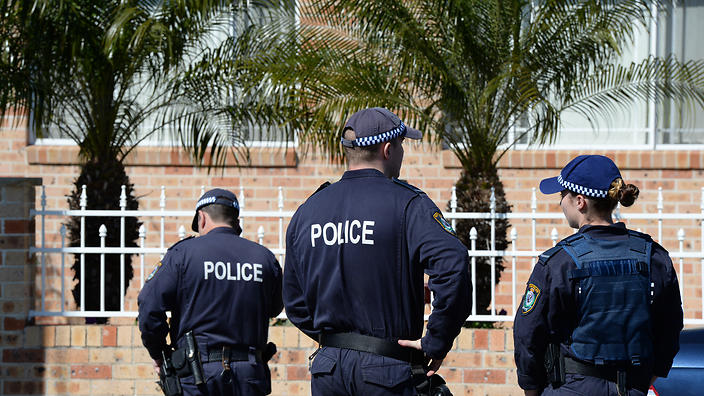The NSW Police Force has announced a new insurance and support scheme for officers, the ‘Enhanced Police Support Scheme’ (EPSS), which will replace the current ‘Police Blue Ribbon Insurance’ (PBRI) from 1 October 2024.
This blog post aims to clarify the key changes to the Police Blue Ribbon Insurance. Whether you’re a current officer, a retiree, or a family member, understanding these changes is crucial for ensuring you receive the benefits and protection you deserve.
What is Police Blue Ribbon Insurance Cover?
Police Blue Ribbon Insurance Cover is a specialised insurance scheme designed to protect New South Wales police officers and their families. The insurance provides financial protection for officers in various scenarios, including on-duty injuries, off-duty accidents, and critical illnesses.
It also offers death benefits to ensure families are supported in the event of an officer’s passing. It includes provisions for both short-term and long-term disabilities and rehabilitation support and can even extend to cover some post-retirement health issues related to service.
Eligible NSW Police Officers receive compulsory Police Blue Ribbon Insurance (PBRI) coverage through Aware Super. This cover includes:
- Terminal illness and death benefit
- Total and permanent disablement (TPD)
- Income protection (IP)
What is the New Enhanced Police Support Scheme (EPSS)?
The EPSS will provide improved coverage for police officers injured both on or off duty and has been designed to provide more off-duty support benefits, including:
- Supplementary support payments for eligible officers injured on duty for up to 10 years.
- Off-duty support benefits with income protection payments from two years up to three years.
- All on and off-duty death benefits remain the same.
It will also address the issue of the previous scheme’s superannuation concessional cap and streamline the claims process by eliminating the need to deal with multiple providers.
However, NSW officers should be aware of unexpected changes to Total and Permanent Disability coverage, which we will now explain.
What is Total and Permanent Disability (TPD) Insurance?
Total and Permanent Disability (TPD) Insurance is a crucial component of many superannuation and insurance packages, including the current NSW Police Blue Ribbon Insurance Cover. This type of insurance provides financial protection if you become permanently disabled and are unable to work again in your usual occupation or any occupation for which you’re reasonably qualified by education, training, or experience.
TPD coverage can often be included in superannuation funds as a default cover, and a TPD benefit is usually paid in a lump sum to help manage the significant life changes that come with a permanent disability. This can include covering medical expenses, rehabilitation costs, necessary home modifications, and ongoing living expenses.
TPD insurance is particularly important for police officers whose work involves heightened physical and mental risks. It ensures that if an officer sustains a career-ending injury or illness, they have financial support to adapt to their new circumstances and maintain their quality of life. The specific terms and conditions of TPD coverage can vary, so it’s essential to understand the details of your policy, including any waiting periods or specific definitions of disability that may apply.
How TPD Insurance Works
When you make a TPD insurance claim, your insurance provider initiates a comprehensive assessment process. This evaluation considers the severity and permanence of your disability and its impact on your ability to work in your occupation or any occupation for which you’re reasonably qualified.
The TPD insurance benefit, typically paid as a lump sum, is calculated to address various aspects of your changed circumstances. It considers immediate and long-term medical expenses, including ongoing treatments, rehabilitation, and necessary medical equipment. The benefit also factors in lost income, not just in the short term but potentially for the remainder of your working life.
For NSW police officers, the transition to the EPSS scheme marks a significant change in how this type of support will be provided in the future, making it even more critical to understand the current TPD insurance landscape and how it applies to your situation.
GET HELP NOW WITH YOUR PERSONAL INJURY
Get in touch with our Personal Injury Compensation team
The Impact of the EPSS on TPD Coverage
From 1 October 2024, Aware Super, the current manager of Total and Permanent Disability (TPD) claims for police officers, will cease providing TPD cover benefits. This means the end of lump sum payments traditionally associated with TPD claims.
Instead, the Enhanced Police Support Scheme (EPSS) will replace the TPD cover, offering a different approach to supporting injured officers. It will supplement weekly benefits payable to NSW Police Officers injured both on and off duty.
Unlike the standard TPD cover, which provides a one-time lump sum payment, the EPSS focuses on ongoing support. This shift from a lump sum to periodic payments represents a fundamental change in how financial assistance is provided to injured officers.
Existing Claims
Existing claims will be unaffected, and if you intend to lodge a TPD insurance claim in the future, you can still submit it to Aware Super for assessment. The conditions for this are:
- You ceased work due to illness or injury before 1 October 2024, and
- You receive medical certification (at any time) that this illness or injury caused you to become totally and permanently disabled.
TPD cover is still available to officers prior to 1 October 2024, so if you have been considering whether or not you should make a claim, you should seek legal advice from experienced TPD Lawyers as soon as possible.
Future Implications
Buying TPD Insurance Separately
Police officers may want to consider purchasing TPD insurance separately from an insurer or a financial institution. TPD cover can be bought on its own or packaged with life cover, which means officers could face additional costs.
Deciding if You Need TPD Insurance
Total and Permanent Disability (TPD) insurance is crucial for many professionals, particularly those in high-risk occupations like law enforcement. Here’s what to consider when deciding if TPD insurance is right for you moving forward:
- Assessing the Potential Costs:
- While TPD coverage may seem unnecessary, consider the extensive expenses of long-term disability care.
- These costs can include ongoing medical treatment, rehabilitation, home modifications, and loss of income.
- Occupation Risk Level:
- TPD insurance becomes particularly valuable if your job involves a higher risk of illness or injury.
- For police officers, the physical and mental demands of the job make this coverage especially relevant.
- Affordability and Sustainability:
- Evaluate whether the cost of insurance is sustainable for your budget.
- Consider different coverage options:
- Fixed cover vs. unitised cover
- Stepped premiums vs. level premiums
- Each option has different long-term cost implications.
- Determining Adequate Coverage:
- Consult with an insurance provider or financial advisor to determine appropriate coverage levels.
- They can help you estimate potential costs for:
- Long-term medical treatment
- Rehabilitation services
- Necessary lifestyle or home modifications
- Ongoing living expenses in the absence of regular income
- Policy Details:
- Carefully review the definition of ‘total and permanent disability’ in the policy.
- Understand any waiting periods or exclusions that may apply.
Remember, while TPD insurance comes with a cost, it provides crucial financial protection in the event of a career-ending disability.
Contact Burke Mead Lawyers Today
As the landscape of TPD coverage for NSW police officers undergoes significant changes, it’s crucial to act before October 1st if you believe you have a valid claim. After this date, the new EPSS scheme will replace the current TPD coverage, potentially affecting your claim. Similarly, if you’re facing difficulties with an insurer regarding an existing claim, don’t navigate this complex process alone.
Burke Mead Lawyers is a team of qualified compensation and TPD lawyers with extensive experience in these cases. Our expertise spans across NSW, including Newcastle, the Hunter Region, and the Central Coast. Contact Burke Mead Lawyers today for a confidential discussion about your TPD claim.
Key Takeaways
- The NSW Police Force is replacing the current 'Police Blue Ribbon Insurance' (PBRI) with a new 'Enhanced Police Support Scheme' (EPSS) from 1 October 2024.
- PBRI provides financial protection for officers, including coverage for on-duty injuries, off-duty accidents, critical illnesses, death benefits, and disability.
- The EPSS will improve coverage for officers injured on or off duty, provide supplementary support payments for up to 10 years, and extend off-duty income protection from 2 to 3 years. Death benefits remain the same.
- However, the EPSS will eliminate lump sum Total and Permanent Disability (TPD) payments. TPD insurance provides financial protection if an officer becomes permanently disabled and unable to work.
- Existing TPD claims are unaffected. Officers can still submit claims to Aware Super if they ceased work before 1 Oct 2024 and receive medical certification of total and permanent disability.
- Officers may want to consider purchasing separate TPD insurance going forward. Factors to consider include potential disability costs, occupation risk level, affordability, adequate coverage levels, and policy details.
- While TPD insurance has a cost, it provides crucial financial protection for officers in the event of a career-ending disability.


